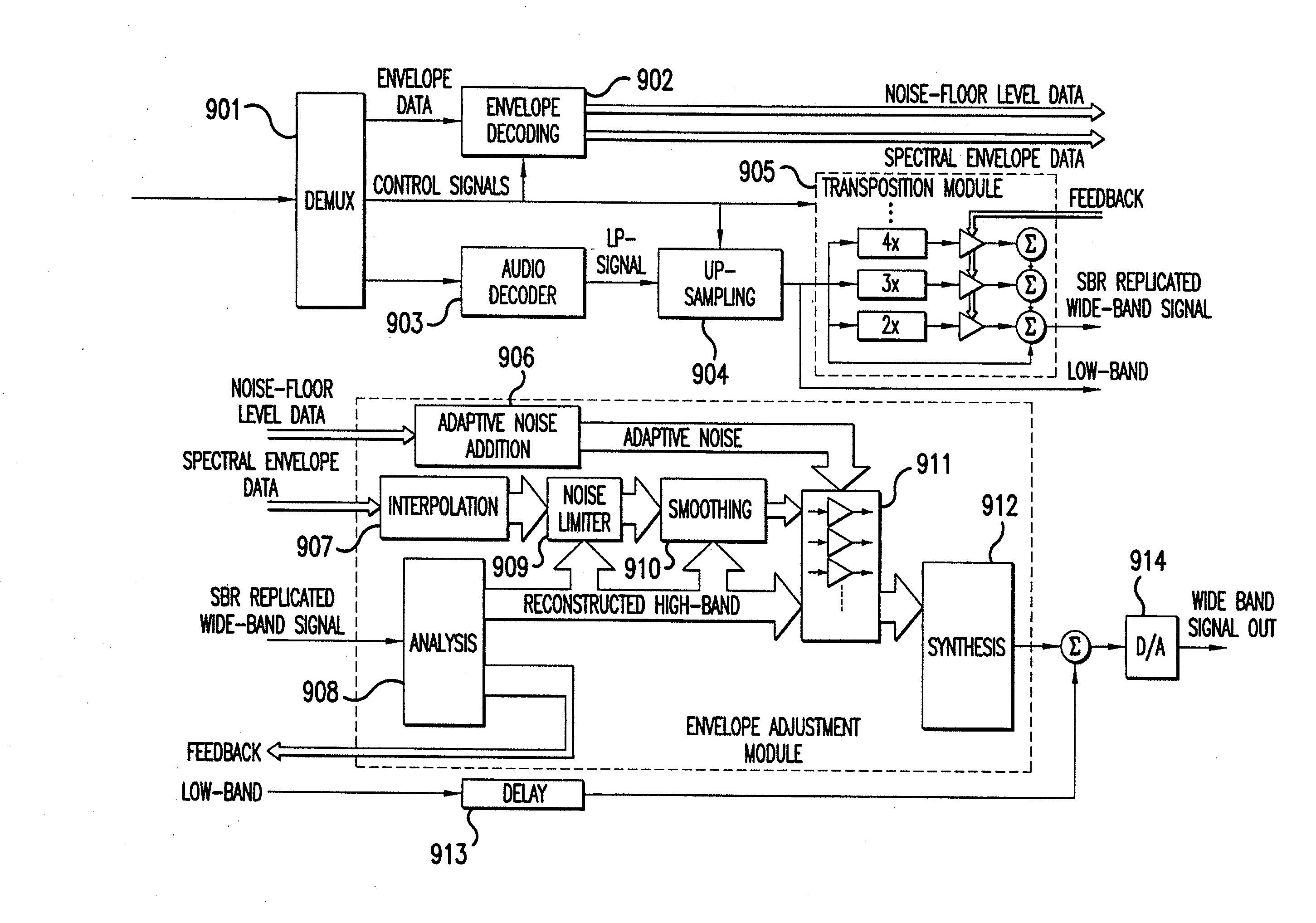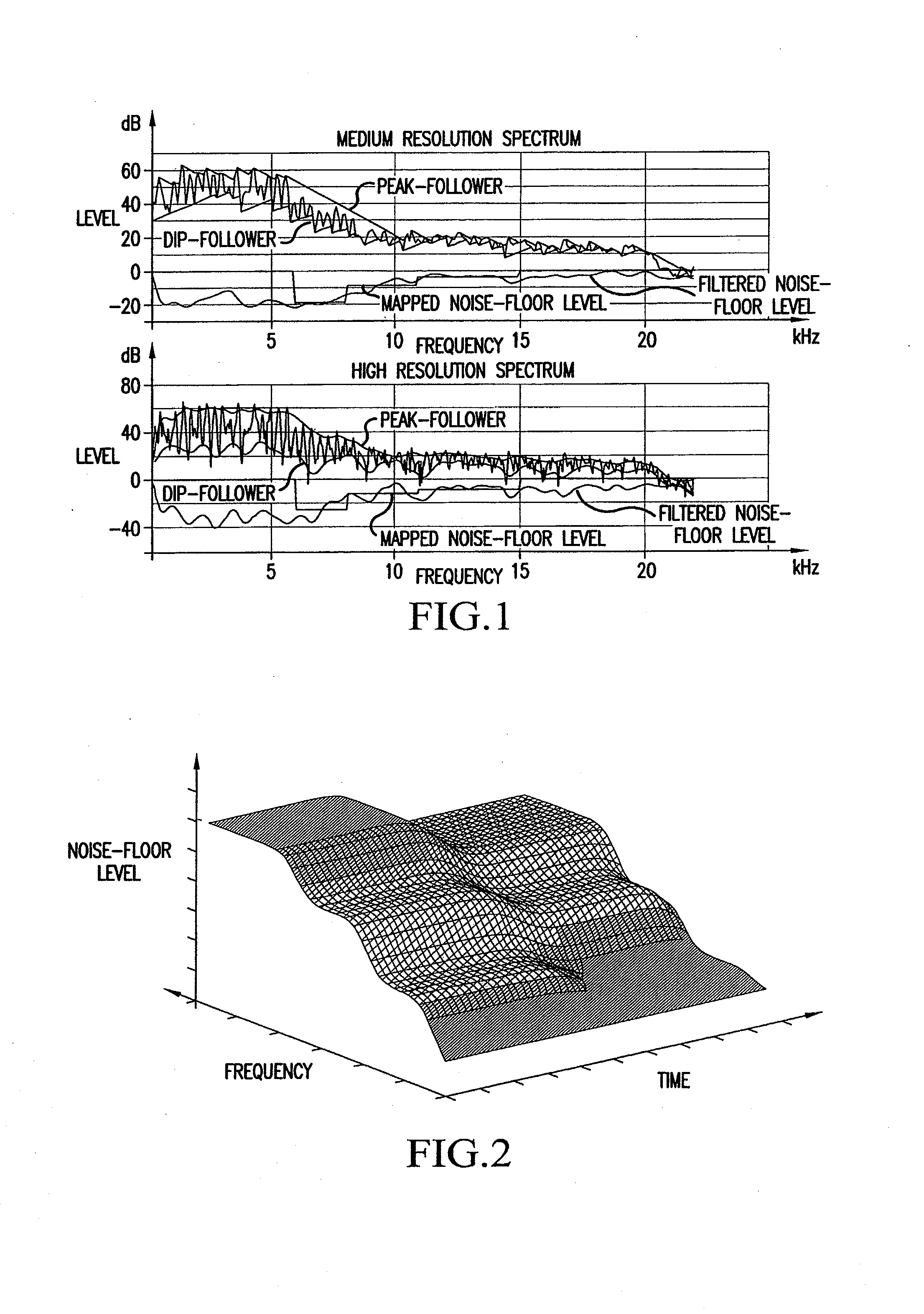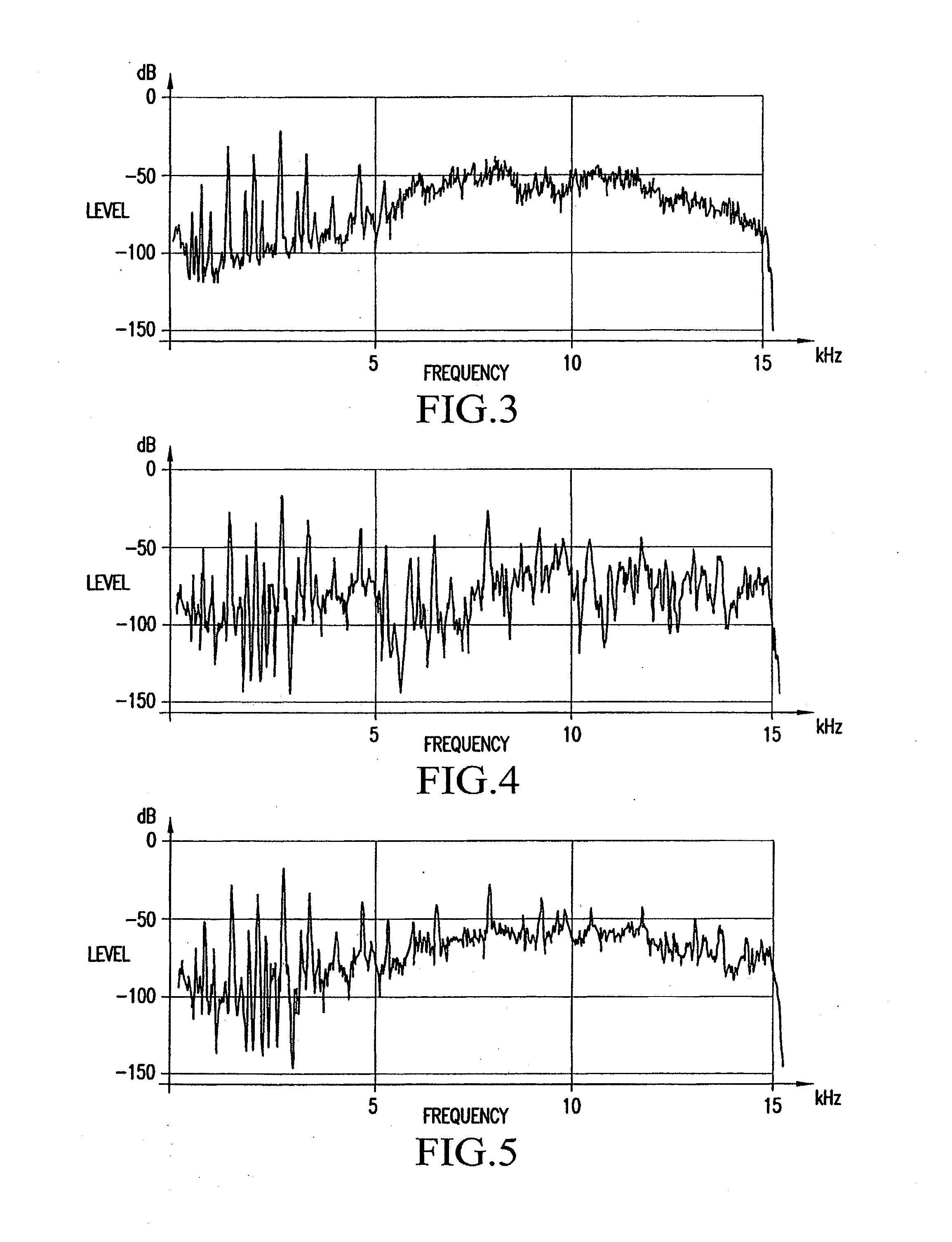Enhancing Perceptual Performance of SBR and Related HFR Coding Methods by Adaptive Noise-Floor Addition and Noise Substitution Limiting
a coding method and noise floor technology, applied in the field of source coding systems, can solve the problems of low quality copy-up process, low quality sbr, frequency transposition, audible artifacts, etc., and achieve the effect of preventing unwanted noise substitution for harmonics
- Summary
- Abstract
- Description
- Claims
- Application Information
AI Technical Summary
Benefits of technology
Problems solved by technology
Method used
Image
Examples
Embodiment Construction
[0028]The below-described embodiments are merely illustrative for the principles of the present invention for improvement of high frequency reconstruction systems. It is understood that modifications and variations of the arrangements and the details described herein will be apparent to others skilled in the art. It is the intent, therefore, to be limited only by the scope of the impending patent claims and not by the specific details presented by way of description and explanation of the embodiments herein.
[0029]When analysing an audio signal spectrum with sufficient frequency resolution, formants, single sinusodials etc. are clearly visible, this is hereinafter referred to as the fine structured spectral envelope. However, if a low resolution is used, no fine details can be observed, this is hereinafter referred to as the coarse structured spectral envelope. The level of the noise-floor, albeit it is not necessarily noise by definition, as used througho...
PUM
 Login to View More
Login to View More Abstract
Description
Claims
Application Information
 Login to View More
Login to View More - R&D
- Intellectual Property
- Life Sciences
- Materials
- Tech Scout
- Unparalleled Data Quality
- Higher Quality Content
- 60% Fewer Hallucinations
Browse by: Latest US Patents, China's latest patents, Technical Efficacy Thesaurus, Application Domain, Technology Topic, Popular Technical Reports.
© 2025 PatSnap. All rights reserved.Legal|Privacy policy|Modern Slavery Act Transparency Statement|Sitemap|About US| Contact US: help@patsnap.com



